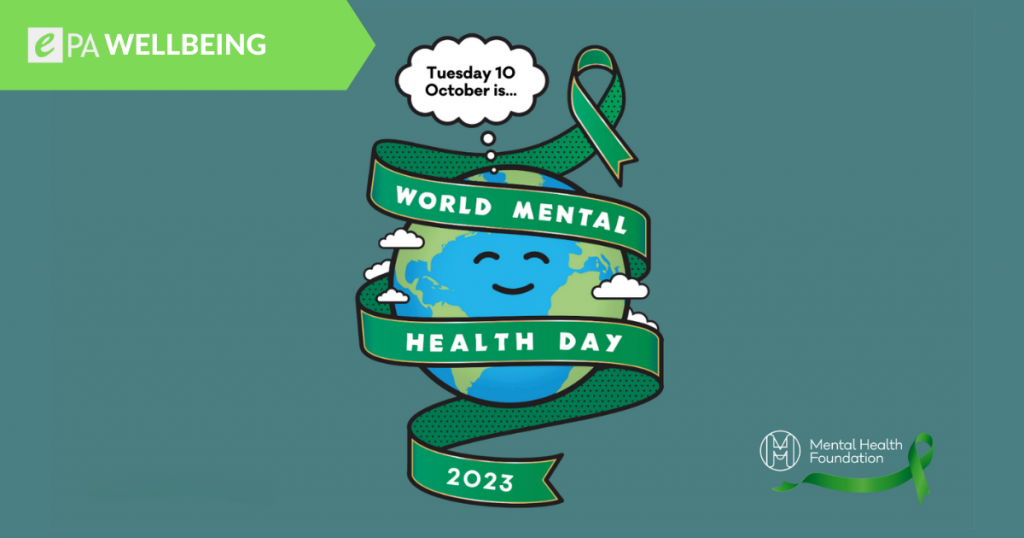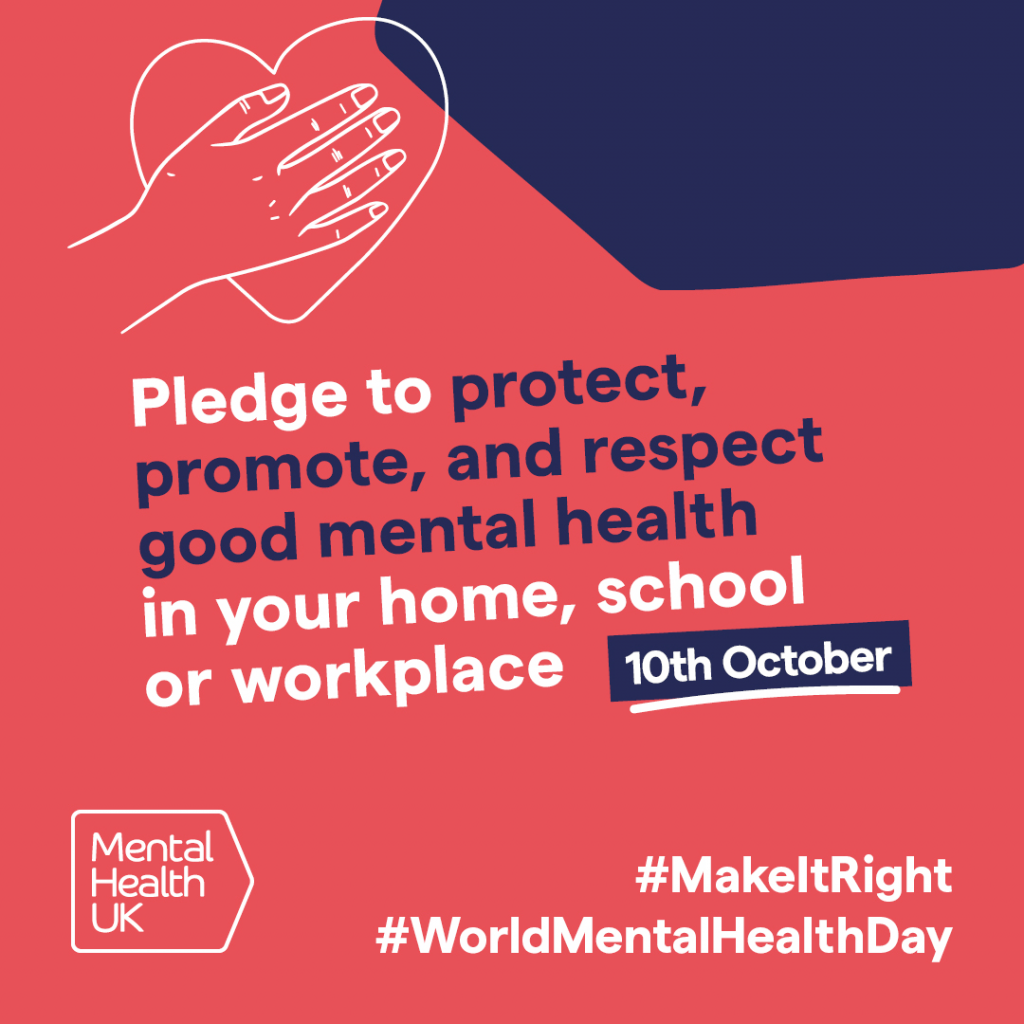
#WorldMentalHealthDay #MakeItRight
Time to buckle up, in this blog post we’re going on another wild ride, this time on the subject of mental health and mental health in the workplace, and prepare yourself to be surprised by the jarring statistics we’ve found and put together for you, as well as resources and ways to help in case of need, regardless if you are a business owner or an employee.
The subject of mental health is still very difficult to touch and frowned upon, even today. And even more so when it comes to mental health in the workplace. We still seem to have barriers against open communication and understanding towards other people’s mental struggles and even towards our own struggles, often denying ourselves the proper care, treatment and support. The time has come to shake off the old and outdated ideas, open our minds and look at the data, as it’s visceral and does not lie.
We have touched on the subject of mental health in the workplace before on our blog, and we invite you to take a look at it here, keeping in mind that it was written more from the business owner’s perspective, where we got into all the resources we could find at that time for business owners to help improve their mental health and tackle the aftermath of the pandemic.
Mental health refers to a person’s overall psychological well-being. It includes the way we feel about ourselves, the quality of our relationships, and the ability to manage our feelings and deal with life’s challenges. Good mental health is essential for a person’s overall health and quality of life. It helps us to cope with stress, build resilience, and lead a fulfilling life.
One of the biggest challenges when it comes to mental health is the lack of understanding and knowledge about these conditions. Many people still believe that mental health problems are a sign of weakness or that they can simply be “snapped out of.” In reality, mental health disorders are complex and can be caused by a variety of factors, including genetics, environment, and life experiences. It is important to remember that mental health is just as important as physical health. In fact, the two are often closely linked. Taking care of your mental health can help you to lead a happier, more fulfilling life. This can involve things like getting enough sleep, exercising regularly, eating a healthy diet, and seeking out professional help if needed.
There is an entire list of mental health conditions that are listed by the NHS here, or by the WHO, here and include Depression, General anxiety disorder, Bipolar disorder, Borderline personality disorder, Eating disorders, Obsessive-compulsive disorder (OCD), Panic disorder, Personality disorder, Postnatal depression, Phobias, Schizophrenia, Stress or neurodevelopmental disorders like Attention Deficit Hyperactivity Disorder (ADHD – Yes, ADHD is indeed a mental disorder and not all of us are “a little ADHD”!) and Autistic Spectrum Disorder (ASD). We would strongly recommend checking out both lists as they offer a comprehensive overall image of mental health issues that people are battling with every single day, in their personal and professional lives, that most of us are ignorant of.
Mental health issues affect millions of people worldwide, and it’s important that we recognise the importance of mental health as a fundamental human right. Just like physical health, mental health is integral to our overall well-being. It affects how we think, feel and behave, and impacts our ability to cope with the challenges of life.
Unfortunately, mental health is still stigmatized in many cultures and societies, leading to discrimination and exclusion of people with mental health conditions. This makes it difficult for people to seek help and support when they need it the most. So let’s break the silence, raise awareness and end the stigma surrounding mental health once and for all.
Workplace mental health statistics from the UK
Mental health as you’d expect, is an important issue in the workplace, and the UK has some concerning statistics that highlight the need for awareness and action. The Mental Health Foundation provides a number of important statistics related to mental health. Here are some of the key findings from their research:
- In the UK, one in four adults experience at least one diagnosable mental health problem in any given year.
- Depression is the leading cause of disability worldwide.
- Suicide is the most common cause of death for men aged 20-49 years in England and Wales.
- In the UK, people from black and minority ethnic groups are more likely to experience poor mental health than the general population.
- Around 16% of people in England will experience a common mental health problem, such as depression or anxiety, in any given week.
- Mental health problems are responsible for the largest burden of disease in the UK – 28% of the burden, compared to 16% for cancer and 16% for heart disease.
- Only around a quarter of people with mental health problems receive ongoing treatment, with many facing long waits for help.
- Mental health problems cost the UK economy around £70-£100 billion per year.
The impact of mental health problems in the workplace is significant. The Health and Safety Executive reports that in 2019/2020, 828,000 workers in the UK were affected by work-related stress, depression or anxiety and that this accounted for 51% of all work-related ill health and from all days off taken by employees due to illnesses, 55% of all working days lost were due to mental health problems. This highlights the importance of prioritising mental health in the workplace and promoting a culture of well-being. With these stats, there is no question we need proactive solutions to improve our mental health in general, not just at work. But the impact mental conditions have on the workforce is concerning, to say the least.
Mental Health at Work estimates that £1,652 is the cost of poor mental health per employee per year.
Moreover, according to a survey conducted by Mind, a mental health charity in the UK, 60% of employees who experienced mental health issues said they felt too embarrassed or ashamed to talk to their employer about it. This indicates that there is still a stigma surrounding mental health in the workplace that urgently needs to be addressed.
Let’s talk about it
It is crucial for employers to prioritise their own mental health, but also create a supportive environment for their employees. By promoting mental health awareness, providing access to resources and support, and fostering a culture of openness and understanding, employers can help reduce the negative impact of work-related stress on their employees’ well-being.
If you, like us, want to get better at acknowledging mental health in the workplace as a business owner and offering support to your employees, you might want to check this list of free resources that you can find here.
On this World Mental Health Day, let’s remember that mental health is a universal human right that should be respected and protected. Let’s work together to promote mental well-being and create a world where everyone can access the care and support they need to thrive. Remember, it’s okay to not be okay, and seeking help is a sign of strength, not weakness.

Where to seek help in case of need:
You may prefer to get free, confidential support by phone or online. You can:
- Call Samaritans on 116 123 at any time of the day or night
- Call Breathing Space on 0800 83 85 87 or visit their website
- Message SHOUT to 85258 for 24/7 text support on your mobile
- Call the CALM helpline on 0800 58 58 58 or use their webchat here. The helpline and webchat are both open 5 pm to midnight, 365 days a year.
Sources:
- Mental Health Foundation. (n.d.). Mental Health Statistics: UK and Worldwide. Retrieved from https://www.mentalhealth.org.uk/statistics/mental-health-statistics-uk-and-worldwide
- Health and Safety Executive. (2020). Work-related stress, anxiety or depression statistics in Great Britain, 2020 – https://www.hse.gov.uk/statistics/causdis/stress.pdf
- Mind. (2019). How to support mental health at work. – https://www.mind.org.uk/workplace/mental-health-at-work/taking-care-of-your-staff/
e-PA is an outsourced customer service provider focused on helping business owners and employees achieve life-work balance. Our services are designed to improve the lives of our clients and their clients alike. To read more about our services click here.
Are you a sole trader in the UK? You might be interested in this article.
Find out why outsourcing is an amazing business strategy here!
Share on social media
Free trial
Trial unique telephone answering completely free for a week.

